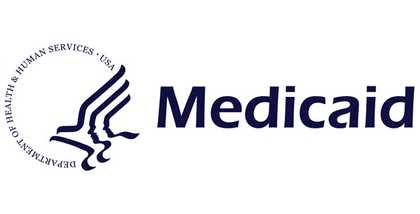Many people underestimate the connection between snoring and oral health, particularly tooth decay. Snoring can disrupt the natural balance of saliva in the mouth, leading to a dry environment that promotes bacteria growth.









$149 New Patient Special!*
Includes comprehensive exam, full mouth x-rays and a cleaning for new patients without insurance.
Many people underestimate the connection between snoring and oral health, particularly tooth decay. Snoring can disrupt the natural balance of saliva in the mouth, leading to a dry environment that promotes bacteria growth. This, in turn, can increase the risk of tooth decay and other dental issues. Understanding how these two seemingly unrelated problems are linked is crucial for maintaining optimal oral health. In this article, we will explore how snoring contributes to tooth decay, the common oral health issues associated with snoring, preventative strategies for maintaining oral health, and professional solutions available to address both snoring and dental health concerns. By being informed, you can take proactive steps to protect your smile.
How Snoring and Tooth Decay Are Related
Snoring is often dismissed as a mere annoyance, but it can have serious implications for oral health, particularly in relation to tooth decay. One of the most significant effects of snoring is the development of dry mouth, which occurs when the mouth remains open during sleep. This open-mouth breathing leads to reduced saliva production, a crucial factor in maintaining oral hygiene.
Saliva plays a vital role in neutralizing acids produced by bacteria in the mouth, washing away food particles, and providing essential minerals to strengthen tooth enamel. When snoring causes a decrease in saliva, the protective barrier against harmful bacteria diminishes, creating an environment conducive to tooth decay.
Moreover, the increased risk of dry mouth heightens the likelihood of plaque buildup. Plaque is a sticky film of bacteria that forms on teeth, and when not removed through regular brushing and flossing, it can harden into tartar. This accumulation not only leads to cavities but can also result in gum disease, further complicating oral health issues. Therefore, addressing snoring and its effects on saliva production is essential for maintaining a healthy mouth.
Oral Health Issues Linked to Snoring
Snoring can be more than just a nighttime nuisance; it can also lead to significant oral health issues. One of the most concerning connections is between snoring and gum disease. When a person snores, the airflow is often restricted, leading to dry mouth. Saliva plays a crucial role in neutralizing acids produced by bacteria in the mouth. Without adequate saliva, harmful bacteria can flourish, increasing the risk of gum disease, which can result in inflammation, bleeding gums, and even tooth loss.
Another serious condition linked to snoring is sleep apnea, a disorder characterized by interrupted breathing during sleep. Sleep apnea can exacerbate oral health deterioration due to reduced oxygen levels, which affect the body’s healing processes. Furthermore, the constant grinding of teeth, often associated with sleep apnea, can lead to tooth wear, increased sensitivity, and even tooth decay. It’s essential to address snoring and sleep apnea not only for better sleep but also for maintaining oral health.
Bad breath, or halitosis, is another common issue stemming from snoring. When people snore, they tend to breathe through their mouths, leading to a dry environment that fosters the growth of odor-causing bacteria. This can result in persistent bad breath, which may be embarrassing and uncomfortable. Regular dental check-ups can help manage these conditions and maintain optimal oral hygiene.
Preventative Measures for Oral Health
Maintaining optimal oral health is crucial not only for a bright smile but also for mitigating issues like snoring and tooth decay. One effective way to combat dry mouth, a common contributor to both conditions, is through proper hydration techniques. Ensure you drink plenty of water throughout the day, and consider keeping a water bottle handy to remind you to sip regularly. Additionally, incorporating hydrating foods such as cucumbers and oranges can enhance your moisture levels and support saliva production.
Proper oral hygiene practices are essential in preventing tooth decay. Brush your teeth at least twice a day with fluoride toothpaste, and don’t forget to floss daily. Flossing removes food particles and plaque that your toothbrush may miss, particularly in hard-to-reach areas. Regular dental check-ups will also help identify early signs of decay, allowing for prompt treatment.
Finally, making lifestyle changes can significantly reduce snoring, which is often linked to oral health issues. Maintaining a healthy weight, avoiding alcohol before bedtime, and sleeping on your side can help decrease snoring frequency. Additionally, consider using a humidifier in your bedroom to keep the air moist, which can alleviate dry mouth and support better sleep quality. By implementing these preventative strategies, you can enhance your overall oral health while addressing concerns related to snoring and tooth decay.
Professional Solutions for Snoring and Dental Health
Understanding the intricate relationship between snoring and dental health can lead to effective treatment options. Many individuals suffer from snoring, which can be disruptive not only to their own sleep but also to their partners. One effective solution is the use of dental appliances specifically designed to alleviate snoring. These custom-fitted devices work by positioning the jaw in a way that keeps the airways open during sleep, reducing the likelihood of snoring. The benefits of using these appliances extend beyond just improved sleep; they can also help prevent complications associated with tooth decay caused by mouth breathing during the night.
In addition to dental appliances, comprehensive consultations for sleep apnea and oral health are available. Sleep apnea can often lead to more serious health issues if left untreated, including various dental problems. During a consultation, professionals will assess your symptoms, discuss your sleep patterns, and evaluate any potential impact on your oral health. Addressing these concerns early on can significantly enhance your overall well-being.
Moreover, regular dental check-ups are essential for maintaining optimal oral health, especially for those who snore or suffer from sleep apnea. These visits allow dental professionals to monitor your dental condition, identify any issues early, and provide preventative care that can help avoid tooth decay. By prioritizing your dental check-ups, you’re taking a proactive step toward ensuring both your dental health and improved sleep quality.









